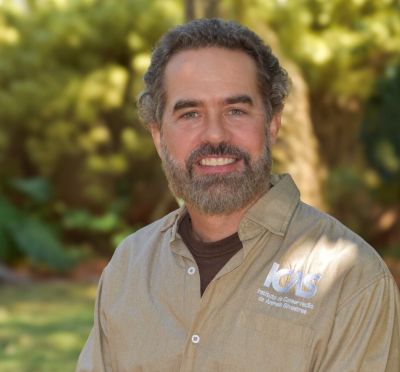Brazil enjoys exotic species that inhabit extraordinary ecosystems. From the vast Amazon Rainforest, teeming with jaguars and macaws, to its diverse freshwater marine life, the country is home to nearly 150,000 types of plants and animals. However, with the continued march of human development that is jeopardizing habitats, this global epicenter of biodiversity is under attack.
The United Nations’ climate change conference — to be hosted in Belém, Brazil, in November — is the perfect opportunity to shine a spotlight on the importance of preserving biodiversity globally. Protecting the delicate ecosystems that line the planet is as consequential as trading in aging coal power plants for 21st-century energy sources.
Plant and animal species are dependent on one another for survival. Trees towering over the rainforests of Brazil, for example, produce energy through the process of photosynthesis. The process grows leaves that insects then eat. Animals, such as the anteater, consume those insects. The anteaters, in turn, are preyed upon by larger carnivores. At the close of the cycle, fungi and beetles break down dead organisms and return nutrients to the soil.
There are millions of interconnected food webs like this worldwide. When one block is knocked out of place because a new housing development destroys a habitat or a road system cuts off migration paths, the whole Jenga tower moves closer to crashing. If that happens, humanity will have bigger problems to deal with than picking up wood blocks.
Healthy ecosystems are directly correlated with human well-being.
Genetic diversity in crops and livestock helps make food supplies more resilient to pests, diseases and climate stresses. Vibrant forests and oceans act as giant filters, providing humans with clean air and water. And robust ecosystems power modern healthcare. One-fourth of all modern Western medicines, for instance, are sourced from plants found in the Amazon Rainforest. Some even refer to Brazil as the world’s largest medicine cabinet.
Biodiversity also provides economic security. Well-balanced habitats support farming and fishing, and tourism. In 2024, travelers visiting Brazil to experience its unique culture and fantastical landscapes added $170 billion to the national economy — money that supports hotels, restaurants, conservation parks and more. It’s a pattern that plays out across much of the world.
In practice, what would putting a renewed emphasis on protecting biodiversity look like?
First, we need to be stronger champions of wildlife. In the United States, the preservation of plants and animals is primarily overseen by the Endangered Species Act. The landmark law, passed in the 1970s, provides special protections for at-risk species and their habitats. Similar laws are sprinkled throughout the rest of the world, including in Brazil.
However, persistent pressures from special interests are eroding these biodiversity protections in the name of economic development. One recent example being U.S. policymakers’ move to exclude endangered species habitats from federal government protections — a change that would significantly gut the ESA. Policymakers worldwide should be exploring opportunities to expand, rather than weaken, safeguards for endangered species.
Second, conservationists should be open to new, cutting-edge strategies to restore biodiversity in areas facing species decline. A process called “rewilding” is a prime example. Drawing on decades of wildlife research, this bold approach repopulates habitats with native plants and animals to support well-balanced food chains. These projects are reserved for areas where humans have disrupted fragile ecosystems.
While critics point to the moral dilemma — and potential unintended consequences — of playing god, conservationists must act boldly. Rewilding should become a more widely used tool globally. The technique has already been successfully deployed in some capacity in the United States and Brazil.
The American bison, for example, has made a considerable comeback through rewilding efforts. The revival has restored the vegetation landscape, allowing it to be seen from space. The Brazilian Atlantic Forest is also getting a biodiversity makeover, with birds, primates and seedlings being reintroduced.
Until now, wildlife conservation has taken a backseat in discussions at global climate talks. Limiting the use of fossil fuels should continue to be a focus of world leaders, but saving the planet will require more than cutting emissions. Fostering healthy ecosystems by promoting biodiversity today is essential for the food, medicine and economic security of tomorrow.



